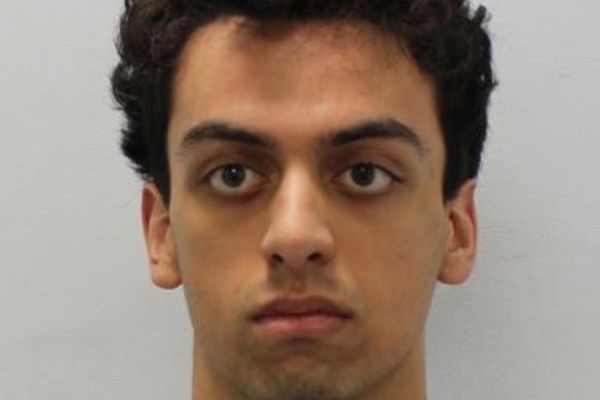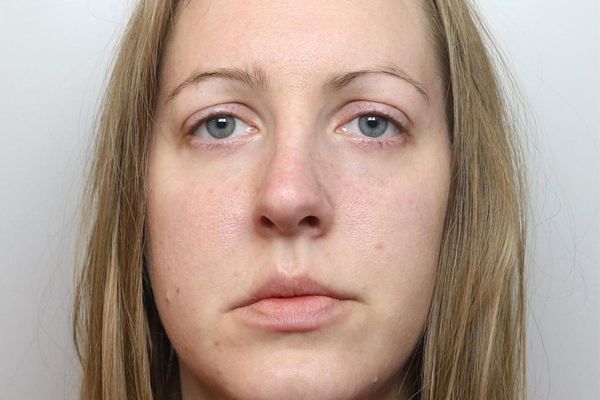
Of all the true-crime documentary series we’ve inhaled over the last few years and all the times we’ve been perplexed and baffled and gobsmacked by the actions and words of certain individuals involved in various murders or kidnappings or heists or cons, the events of “Mind Over Murder” might just be the most mind-blowing of all.
The background. In 1985, in the small town of Beatrice, Nebraska, a beloved 68-year-old mother and grandmother named Helen Wilson was sexually assaulted and killed in her small apartment.
Six people eventually confessed to the murder and served a collective 77 years in prison for the heinous crime — only to be exonerated in 2009 when DNA evidence proved none of them was even in the apartment, let alone responsible for the attack.
Ten years later, in a civil case, the county was ordered to pay a total of $28 million to the wrongly convicted individuals.
To this day, many in the town believe those six people were indeed the killers — and at least one of the wrongly convicted people still has doubts about whether they were involved.
Premiering Monday on HBO and HBO Max, this six-part series from the brilliantly innovative, Peabody Award-winning director Nanfu Wang is a journalistically impactful deep dive into the crime and the ripple effect that still resonates through Beatrice. It’s also a sobering examination of the reliability — or lack thereof — in relying on confessions and memories when suspects feel pressured, threatened and overwhelmed.
Wang draws insights from investigators and attorneys involved in the case, talks with the grown grandchildren of Helen Wilson and interviews four of the five surviving members of “The Beatrice Six.” She also employs a provocative and controversial technique I’m sure I’ve never seen in any documentary — staging a play about the case in Beatrice, with real-life residents portraying the real-life suspects, cops, attorneys, etc.
In the wrong hands, this could have come across as crass and exploitative. But Wang is a sensitive, intuitive, empathetic filmmaker, and we can feel how many in the community come to trust her through the making of the documentary and the production of the play-within-the-movie.
It’s complex. Everything about this case is complex.

“Mind Over Murder” opens with a chilling, horror-movie score and some beautiful yet hauntingly framed shots of Beatrice, followed by vignettes in which we meet a number of the locals auditioning for the play as they introduce themselves and talk about their lives in “your basic small town in the Midwest of America,” “one of those towns that everybody’s got a friendly hand.”
But then we hear someone else, off camera, saying, “They’re crazy down there, they’re psychotic in a way that Stephen King would write about” — and we’re hooked.
Cut to news footage of the Beatrice Six being exonerated in 2009, followed by a moment when an off-camera Wang asks Wilson’s grandson Shane Wilson, “What happened to your grandmother?” and he replies, “To be honest, not everyone believes the same story.”
Talk about understatement.
We learn about Helen Wilson and how much her family and friends loved her, and we feel for her grandchildren as they recount the shock and grief they experienced when she was taken from them in horrific fashion. Still, despite promising leads, investigators were unable to find a suspect whose blood matched the “Type B non-secretor” found in the apartment. “The longer you work on it, the more frustrated you get,” says former Lt. William Fitzgerald.
In 1989, Deputy Burt Searcy of the Gage County Sheriff’s Department took over the investigation and seemingly cracked the case wide open. Searcy began rounding up suspects and extracting confessions from a number of them. We see grainy video footage of Searcy interrogating these unsophisticated, often troubled individuals — feeding them information about the case, then asking them to essentially confirm what he has told them.
With Wang alternating between present-day interviews, scenes of the locals rehearsing the play and archival footage, we hear about the power-hungry district attorney whose methods were at times questionable and a police psychologist who suggested to the suspects they had repressed their memories of committing the crimes.
One suspect eventually confesses to second-degree murder to avoid the death penalty. Another says, “I just told them what they wanted to hear. … There’s so much s--- in this case that I can’t remember at all.” Another suspect is implicated because someone had a DREAM about that person being in the apartment.
Maren Chaloupka, the civil attorney for one of the defendants, says, “A lot of my work is in the intersection of mental illness, law enforcement, jail and prison, [and this case] was the worst of all worlds. You had law enforcement close a case off the backs of people they see as disposable.”
By the conclusion of the six-episode run, not all of the loose ends have been tied together, and not everyone is capable of accepting the Beatrice Six were innocent.
Still, at least some of the key figures in this decades-long nightmare seem to have reached some measure of closure, though just about everyone is still haunted by the events of 1985.







